
PREV ARTICLE
NEXT ARTICLE
FULL ISSUE
PREV FULL ISSUE
QUERY: 1771 PUGACHEV ROUBLEWeb site visitor Lance Schweiter asked, I have a 1771 Pugachev Sestroretsk rouble - can you tell me if it is genuine?  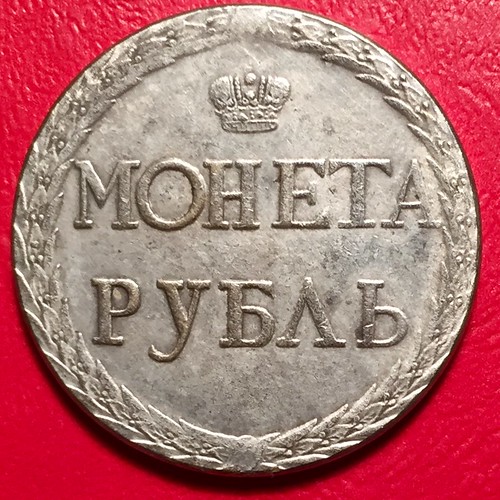
I passed this along to my friends Steve Bishop and Eric Schena, both serious collectors of Russian coinage. -Editor Steve writes: It appears to be a cast copy. The real thing would be much sharper (see picture). Also, they are really rare, so the odds of it being genuine is essentially zero. You can get a much nicer copy for $50 here: https://www.soviet-power.com/detail.php?pid=1276 . 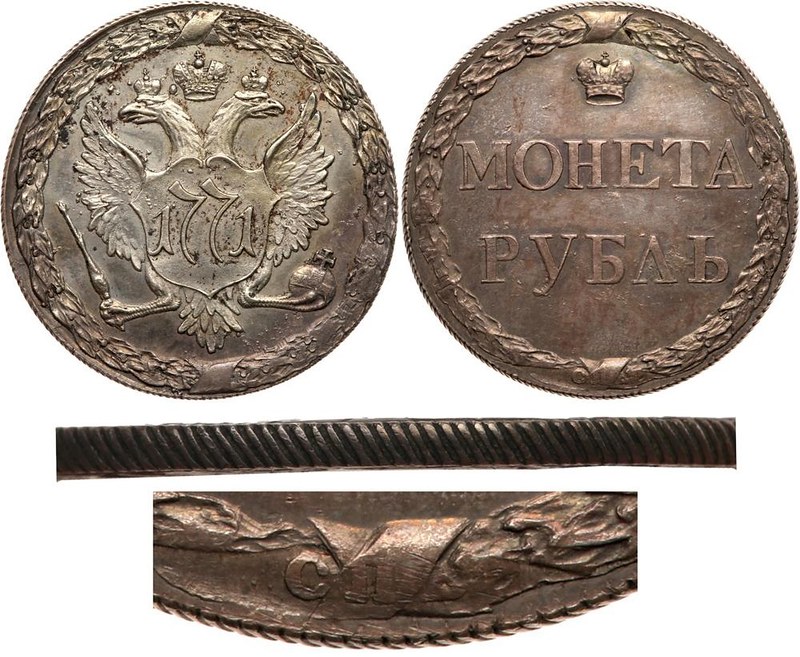
A genuine Pugachev Rouble
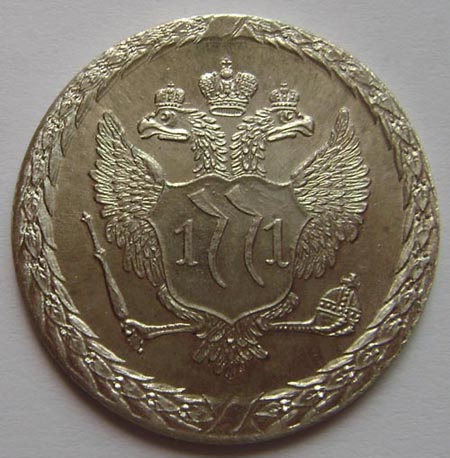 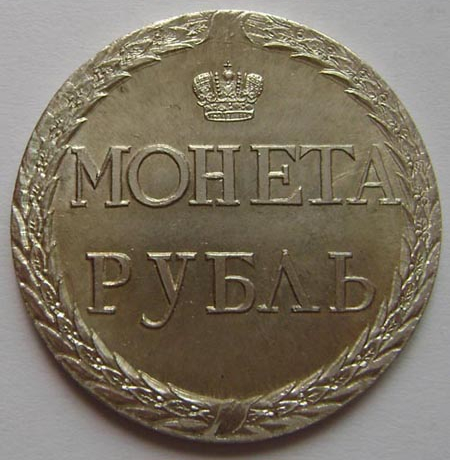
Repro Pugachev Rouble Lance responded: The picture you sent is a completely different coin. It has a C mintmark and my coin is made of silver and counterfeits of this date are rare. Unless it is a really modern copy. The counterfeits for sale look copper and are in pristine condition. Here is a genuine one according to the site and it looks exactly like mine. The coin does not stick to magnet. It came from Russia so it is not a modern fake.  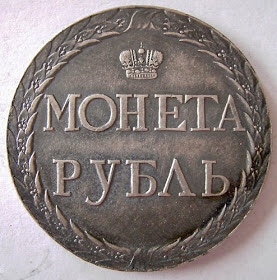
From: https://www.worldbanknotescoins.com/2013/08/russian-coins-ruble-sestroretsk-ruble.html I replied,"I would say your coin does NOT look ENOUGH like this to be genuine. The surface is bumpy and that is how cast copies look. Since it doesn't stick to a magnet that rules out iron or steel but doesn't mean it's silver. Yours has a silvery color, but it doesn't look silver to me either. It looks like white metal or lead." -Editor Steve writes: The picture I sent is a rare variant which was in a Goldberg auction. I meant it to show how a struck coin would look as compared to a cast. Russia is the primary source for fakes of old Russian coins. There are dozens of listings on eBay by Russian sellers of modern fakes. I've bought some to have a representation of such classic rarities as the Sestroetsk rouble, and yes, the Pugachev rouble. Eric Schena writes: I concur with Steve and you: that does not look like a genuine example. The one Steve illustrated is much sharper, plus it was overstruck on an earlier ruble (the C is a portion of the St. Petersburg Mint mark of the undertype). Most if not all genuine examples are found overstruck on silver rubles. The dies on the original "Pugachev ruble" were also used on the massive hockey puck sized Sestroretsk rubles and will be die linked with those, as well. These coins have been copied extensively for generations in all metals, including silver. Because the originals are so exceptionally rare and most known examples well documented, it is equally unlikely that this one is genuine. It would be the Russian numismatic equivalent of finding an 1804 dollar. Steve writes: There is one unique example struck over a copper 5 kopeck piece in the Hermitage. I have a copy of that one, struck over a genuine 5 kopeck. I also have a copy of the unique 1770 Sestrotsk rouble, also in the Hermitage, both acquired from Russian sellers on eBay. Thanks, everyone. Steve, Eric and I have gone as far as we can based on the images. For a definitive opinion, the coin should be submitted to a certification service such as NGC. See https://www.ngccoin.com/ . -Editor 
Wayne Homren, Editor The Numismatic Bibliomania Society is a non-profit organization promoting numismatic literature. See our web site at coinbooks.org. To submit items for publication in The E-Sylum, write to the Editor at this address: whomren@gmail.com To subscribe go to: https://my.binhost.com/lists/listinfo/esylum All Rights Reserved. NBS Home Page Contact the NBS webmaster 
|